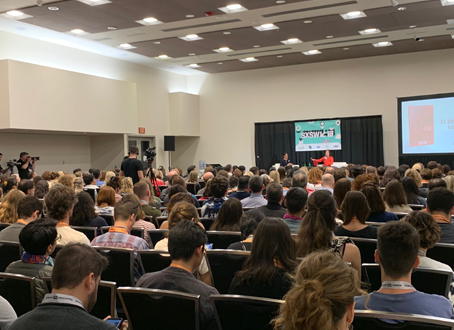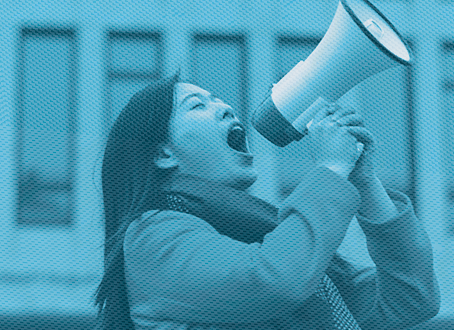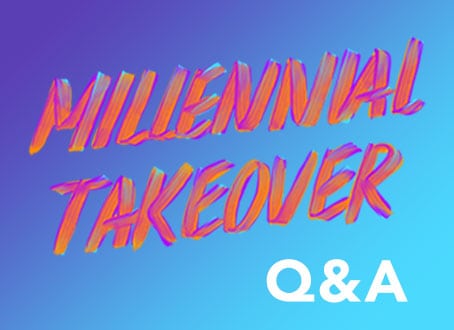Growing up, I was raised by German grandparents, whom I truly loved. They were a big influence in my life and some of the things they modeled, like hard work, faith, commitment to family and love of country are just some of the enduring qualities that so greatly influenced me. They left their homeland of Germany in the 1920’s, as an ugly movement was beginning to take shape there. As history records, the Nazi Party would soon come to power, exploiting the fears of those living in an economy that was left in ruins after World War I and exploiting a society that had divisive factions emerging that were spewing hate and blame. My grandparents arrived in America with little money in their pockets and no English-speaking skills, but they carried with them a dream of a better life. After settling in the Midwest, their hard work and grit enabled them to start businesses of their own and they slowly claimed a solid place in the middle class—a nice home, reliable car, savings in the bank and the ability to pay their bills without worry. I so admired their spirit and their willingness to sacrifice for what was important.
As I grew I would often pepper them with questions about Germany—could they help me understand the rise of the Nazi party? Could they possibly explain the inaction of citizens who saw the divisive threat that Nazi movement represented before they came to power, but did not find a way to stop it? I grew fascinated with the stories of remarkably brave individuals like Miep Gies, who harbored Anne Frank’s family and Corrie Ten Boom, who helped many Jews escape the Nazis and who was later imprisoned for her actions. And so, I wondered, how could some watch neighbors be dragged away and do nothing? So much of this had come long after my grandparents left their homeland, so that they, too, struggled with these questions.
Fast forward to America in 2017. We live in a country with good people all around—great Americans committed to all that this country stands for. And, yet, in the midst of it all, what was laid bare in the events in Charlottesville over the weekend was the fact that in some communities and towns across America, ugly, divisive factions are at work seeking to pit citizen against citizen. Responses to this abhorrent gathering ranged from silence, to tepid statements to the most clear, fearless call-outs for what it was: a modern version of the Nazi spirit that swept across Germany in those earliest days, or the racial bigotry that swept across swaths of our own nation in our own dark past, resulting in a bloody war, sometimes pitting brother against brother, 150 years ago. And while, yes, this was one incident and perhaps not an exact parallel to the more dramatic and ubiquitous events of the past, still, it merits contemplation.
In our work at the Case Foundation over the last 20 years, we have maintained a strong focus on igniting civic engagement, with a firm belief that an active, engaged citizenry makes for a strong democracy. Taking up the lessons from ugly factions that emerged in other places through history, and even across our own nation in the past, we recognize that we cannot wait until divisiveness takes a stronger hold in our streets, or impacts us in a personal way. In Charlottesville and across the country, we must call out hate and bigotry—and individuals and organizations that promote them—for what they are. We must stand up with a voice and with actions early, when we see this reprehensible movement on display. We must stand together with those being targeted to offer our support and assurances that we’ll have their back. We must be swift and clear with our words to send the strongest signal possible that hate and racial bigotry have no place in America. Our voice, our actions should be directed with full awareness that we want to be counted—counted in the present as those who will stand up for the values of this nation and for its citizens, and counted through time so the next generation may never have to ask, “How did they let this happen?”
In short, we need to turn this threat of division into an opportunity to come together as citizens. To reignite our beliefs and practices around the values we hold dear and the belief that all are created equal, and deserving of life, liberty and the pursuit of happiness. It’s well recorded that even the founders of our nation, who embraced the language of equality, couldn’t find a way to lift the burdens of slavery and injustice, and left it to the generations to follow. Perhaps after nearly 250 years of slow progress, it is time for our nation, its citizens and its institutions to take the final steps and, at last, not just quell efforts that promote injustice, but commit ourselves fully to ensuring a fair and just society for all.
In the coming days, we each must ask how we can use our voice, our participation, our resources and our actions to make a difference. Dangerous movements that threaten society often start as one moment with just a few participants. But just as Martin Luther King, Jr. spoke of the “fierce urgency of now”, we, as caring, committed citizens must create our own positive movement to overwhelm the voices of hate, bigotry, violence and division before they are given a chance to grow and further infect our communities. We each have a role to play and now is the time to play it.
To those questions I asked my grandparents way back in the day, I think we all knew the answer then, even if unspoken, and it speaks to us through the generations. Fear created the silence. Fear created the inaction.
Today we have a choice: we can turn the other way and pass off the growing, dangerous divisions as someone else’s problem to solve, or we can choose to Be Fearless at a time in our modern history when our nation may need it most. To truly let urgency conquer fear with actions, words and a renewed commitment to American values we hold so dear.
The decision to ignore, overlook, brush off or to take real action is an individual one. Yet, if we work together and all take action, we can turn these despicable acts into a rallying point for change that will make our communities, families and democracy even stronger. While we each need to find our own path and make decisions based on our own experiences, some ways to take a positive step forward include:
- Talk to and teach our children
- Speak up when even slight injustices and less dramatic examples of hate and bigotry are on display
- Use your civil society ties (church, civic organizations, etc.) to reach out to those targeted and express support, and use the power of the collective to help build a movement; take steps to have your pews and your membership ranks reflect the rich fabric of America
- Encourage companies and organizations to embrace and enforce clear policies and values statements
- Support those whose mission and focus seek to build bridges and break down divides, in both the for-profit and non-profit worlds
- Thank and support leaders who call out injustice, hate and violence and who take bold measures to protect citizens
- Seek out and embrace friends, neighbors and community members who are different from you to build genuine connections and meaningful interactions
- Model kindness toward others in big and small ways
The events in Charlottesville stopped many of us in our tracks. We mourn the lives lost, pray for those injured, and hope for a balm to mend the wounds in the hearts of many Americans who felt injustice and hate. By standing together, being clear and being counted and taking individual actions, we can halt this movement and make our country and democracy even stronger. At the Case Foundation, we’ve always believed that small actions, when taken together, can do powerful things. I look forward to standing side-by-side with the millions of other Americans who are using their voice and taking action to ensure our country remains a beacon of hope now and for future generations.





